Are you wondering if you can use your credit card to pay off your personal loan in Singapore? The answer is not as straightforward as you might think. While it is technically possible to pay off a personal loan with a credit card, there are several factors to consider before doing so.
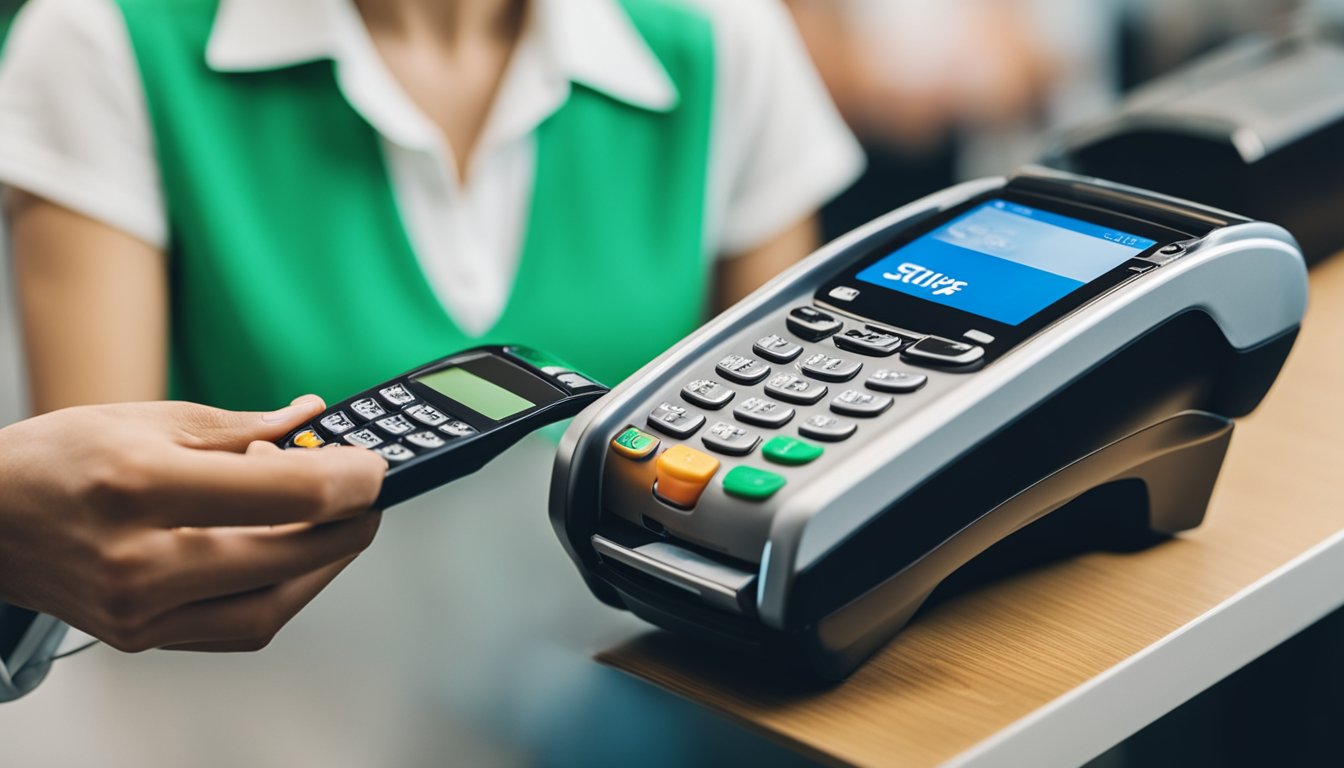
One of the main things to consider is the interest rate. Credit cards typically have higher interest rates than personal loans, so using a credit card to pay off a personal loan could end up costing you more in the long run. Additionally, some personal loan providers may not accept credit card payments, so you will need to check with your provider before attempting to make a payment with your credit card.
2 Min Read
Short on time? Here’s the key takeaway:
Using a credit card to pay off a personal loan might seem tempting, but it’s generally not recommended in Singapore. Credit cards typically have higher interest rates than personal loans, potentially trapping you in a cycle of debt. Consider alternative solutions like debt consolidation plans or short-term, low-interest loans before turning to your credit card.
Remember: Responsible credit card usage is crucial for maintaining a good credit score.
Want to dive deeper?
This article explores the nuances of using credit cards for personal loan repayment in Singapore. It covers:
- Pros and cons: Weigh the benefits like lower interest rates and potential credit score improvement against the risks of higher interest charges and potential negative credit score impact.
- Strategies for loan repayment: Explore effective planning, managing multiple debts, and alternative loan repayment methods.
- Financial implications: Understand the impact on your credit score, budgeting, and potential fees.
- Alternatives: Consider personal instalment loans, short-term loans, and debt consolidation plans.
- Application process: Learn about applying for loan repayment using credit cards in Singapore, including MyInfo and promotional offers.
Make an informed decision:
Before choosing this route, carefully assess your financial situation, compare options, and prioritize responsible credit card usage.
Understanding Personal Loans in Singapore
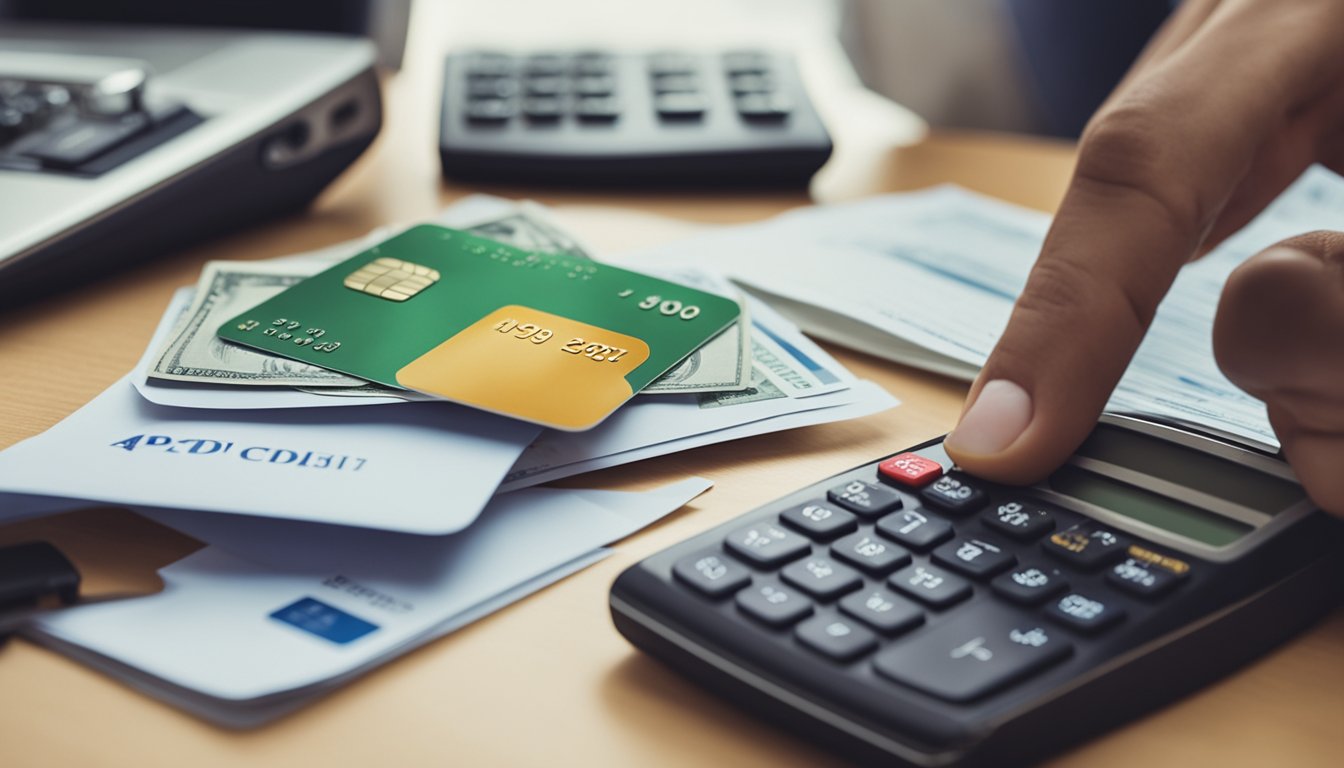
If you’re considering taking out a personal loan in Singapore, it’s important to understand the basics of personal loans, eligibility criteria for borrowers, and interest rates and EIR.
Basics of Personal Loans
Personal loans are unsecured loans that you can use for various purposes, such as debt consolidation, home renovation, or travel. Unlike secured loans, personal loans do not require collateral. Personal loans in Singapore usually have a fixed repayment period and interest rate.
Eligibility Criteria for Borrowers
To be eligible for a personal loan in Singapore, you must be a Singapore citizen, Permanent Resident (PR), or a foreigner with a valid work permit or employment pass. You must also meet the lender’s minimum income requirements and have a good credit score. Some lenders may also require you to have a minimum net personal assets.
Interest Rates and EIR
The interest rate for personal loans in Singapore is usually fixed and ranges from 3.5% to 8% per annum. The Effective Interest Rate (EIR) takes into account the processing fee and any other charges associated with the loan. The EIR is a more accurate representation of the total cost of borrowing and is required by law to be disclosed to borrowers.
When comparing personal loans, it’s important to look at both the interest rate and EIR to get a better understanding of the total cost of borrowing. Some lenders may offer lower interest rates but higher processing fees, which can increase the EIR.
In summary, personal loans in Singapore can be a useful financial tool for various purposes. However, it’s important to understand the basics of personal loans, eligibility criteria for borrowers, and interest rates and EIR before applying for a loan.
Credit Cards: A Comprehensive Overview
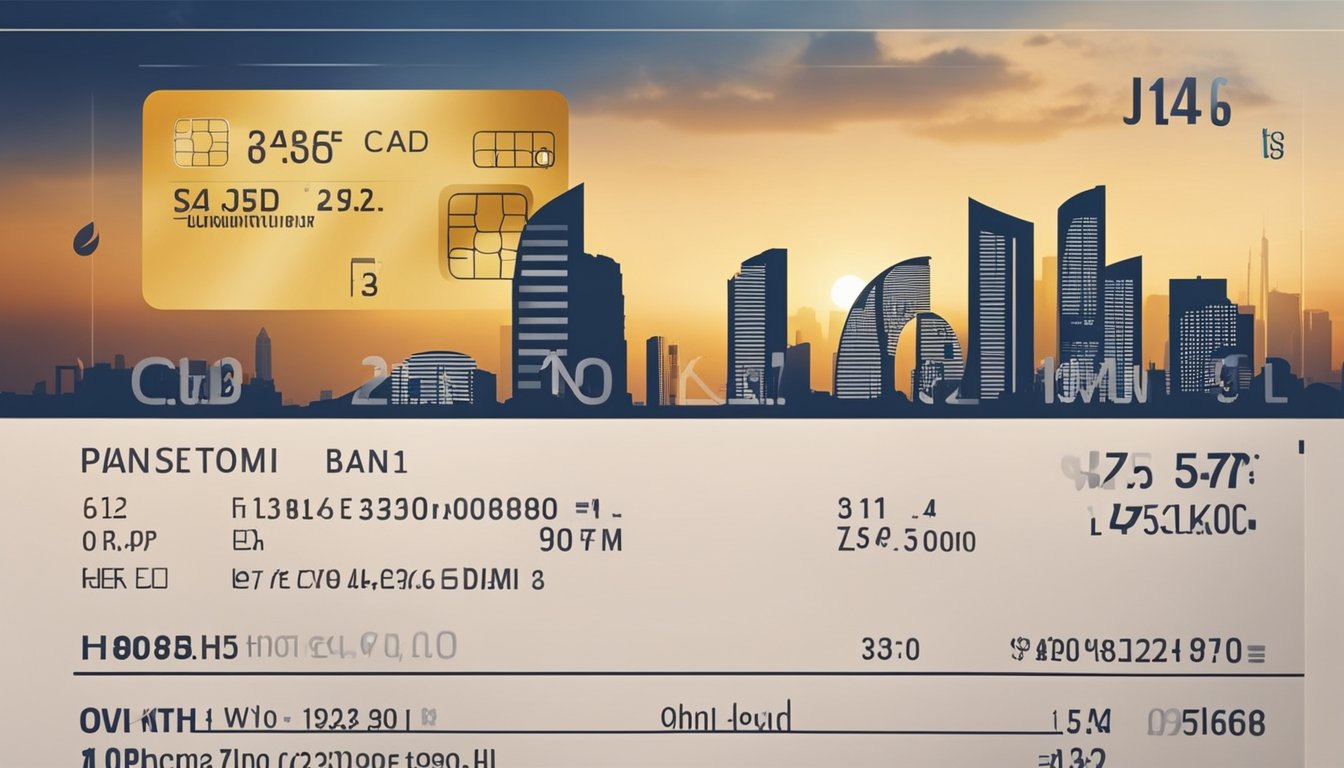
How Credit Cards Work
Credit cards are a popular payment method that allows you to borrow money from a bank or financial institution. When you use your credit card, you are essentially borrowing money from the bank to pay for your purchases. You can use your credit card to pay for goods and services both online and offline.
Credit cards come with a credit limit, which is the maximum amount of money you can borrow. Your credit limit is determined by the bank or financial institution and is based on your credit history and other factors. When you use your credit card, you are charged interest on the amount you borrow. The interest rate is known as the Annual Percentage Rate (APR).
Credit Card Fees and Charges
Credit cards come with a range of fees and charges that you need to be aware of. Some of the most common fees and charges include:
- Annual fees: Some credit cards charge an annual fee for the privilege of using the card. This fee is usually charged once a year and can range from a few dollars to several hundred dollars.
- Late payment fees: If you don’t pay your credit card bill on time, you may be charged a late payment fee. This fee can be quite high and can add up quickly if you are consistently late with your payments.
- Overlimit fees: If you exceed your credit limit, you may be charged an overlimit fee. This fee can also be quite high and can add up quickly.
Understanding Your Credit Card Limit
Your credit limit is the maximum amount of money you can borrow on your credit card. It’s important to understand your credit limit and to use your credit card responsibly. If you exceed your credit limit, you may be charged an overlimit fee and your credit score may be negatively impacted.
To avoid exceeding your credit limit, it’s important to keep track of your spending and to make sure you don’t spend more than you can afford to repay. You should also make sure you make your credit card payments on time to avoid late payment fees and to maintain a good credit score.
In summary, credit cards are a convenient way to pay for goods and services, but they come with a range of fees and charges that you need to be aware of. It’s important to use your credit card responsibly and to make sure you don’t exceed your credit limit. By doing so, you can enjoy the benefits of using a credit card without getting into debt.
The Mechanics of Using Credit Cards for Loan Repayment
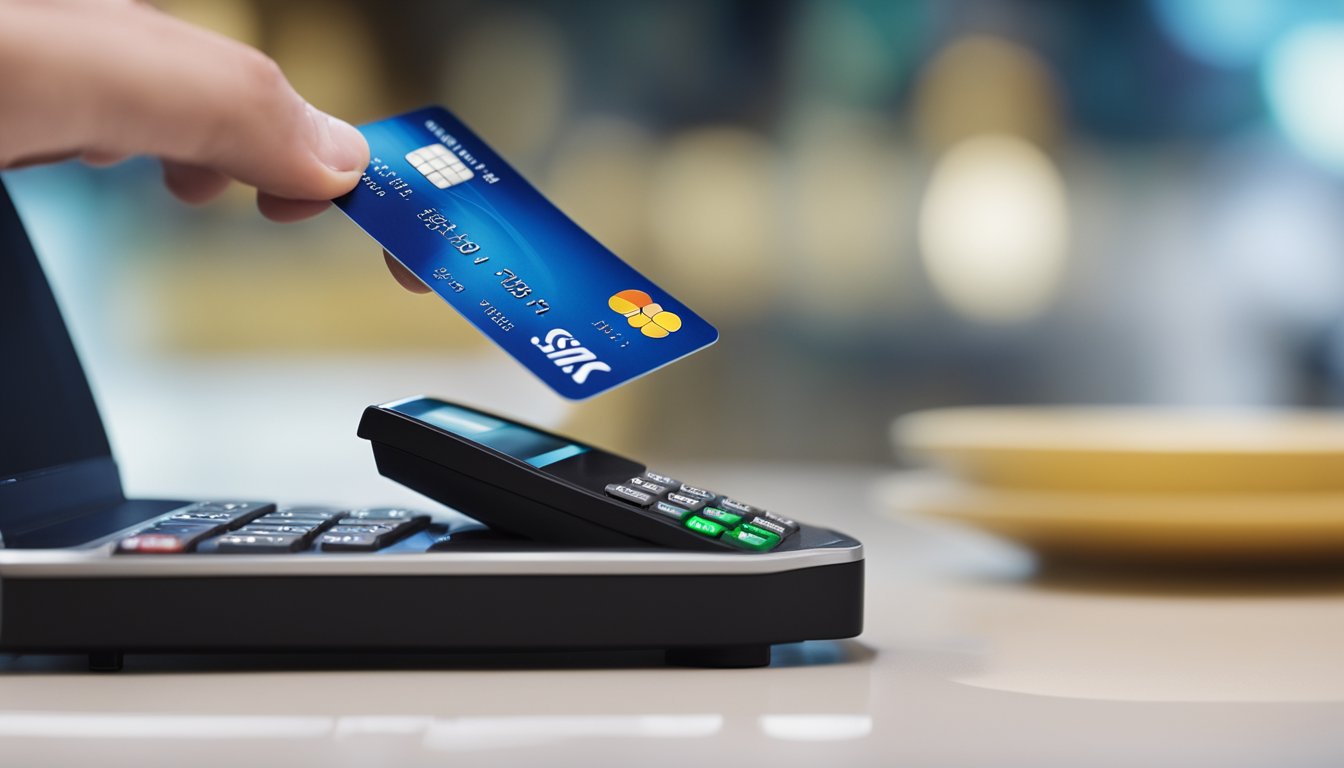
If you’re struggling with personal loan repayments, you might wonder whether you can use your credit card to pay off the debt. The answer is yes, but you need to be careful. Here’s what you need to know about using credit cards to repay personal loans in Singapore.
Balance Transfer Options
One way to use your credit card to pay off a personal loan is to take advantage of balance transfer options. Many banks offer balance transfer plans that allow you to transfer your personal loan balance to a credit card with a lower interest rate. This can help you save money on interest charges and make your monthly repayments more manageable.
However, you need to be aware of the terms and conditions of the balance transfer plan. Some plans may charge a balance transfer fee, which can be a percentage of the amount transferred. You also need to make sure you can make the minimum monthly repayments on the credit card, or you risk incurring additional fees and interest charges.
Debt Consolidation Plans
Another option to consider is a debt consolidation plan. This is a type of personal loan that allows you to consolidate all your unsecured debts, such as credit card balances and personal loans, into one loan. You can then use the loan to pay off all your debts, including your personal loan.
Debt consolidation plans can be a good option if you have multiple debts with high interest rates, as they can help you save money on interest charges. However, you need to be aware that debt consolidation plans may charge processing fees and other charges, so it’s important to read the fine print before signing up.
In conclusion, using your credit card to pay off a personal loan can be a good option if you’re struggling with repayments. However, you need to be aware of the terms and conditions of any balance transfer plan or debt consolidation plan you’re considering. Make sure you can make the minimum monthly repayments on the credit card, and read the fine print to avoid any unexpected fees and charges.
Pros and Cons of Paying Off Loans with Credit Cards
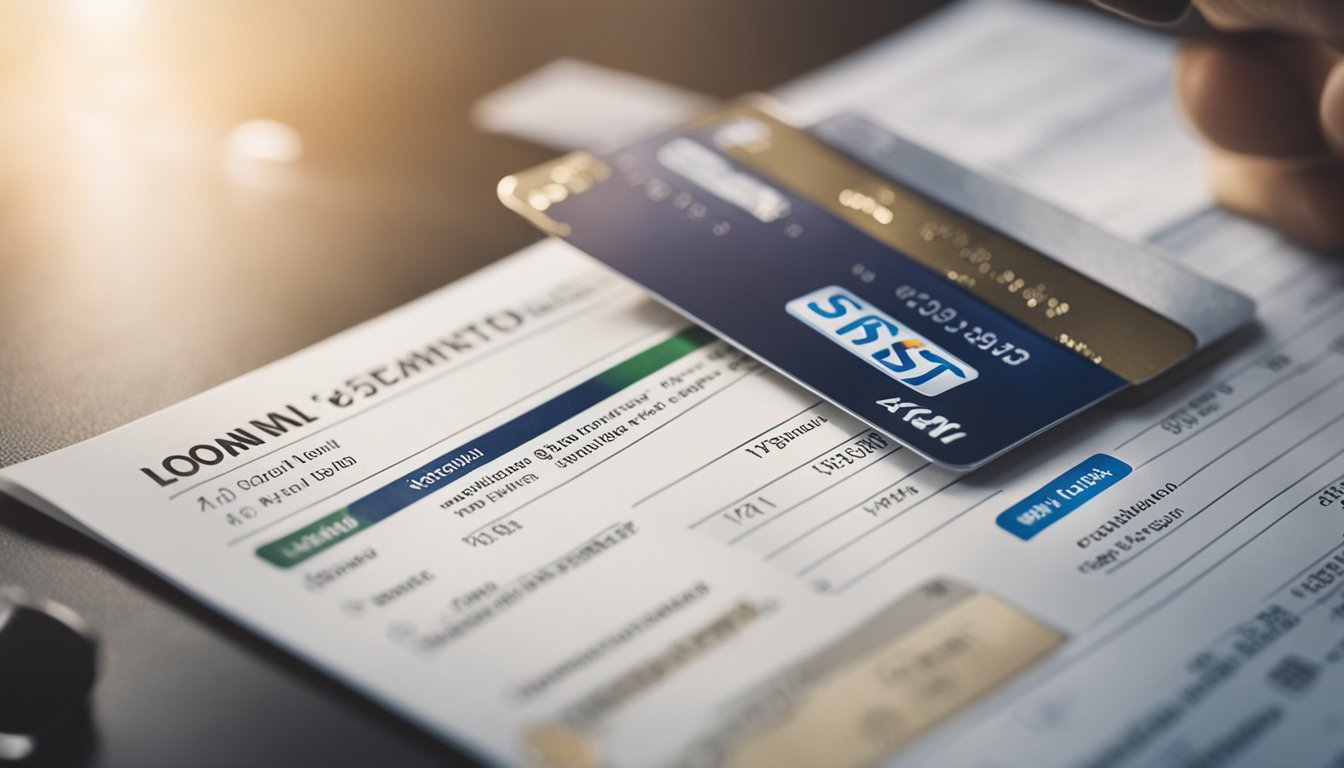
Benefits of Credit Card Repayments
Paying off your personal loan with a credit card can offer several advantages. Firstly, it provides you with the flexibility to manage your debt more effectively. By consolidating your loan amount onto a credit card, you may benefit from lower interest rates, potentially saving you money in the long run. Additionally, making regular credit card payments can positively impact your credit score, demonstrating responsible financial behaviour. This could enhance your eligibility for future credit and lending opportunities.
Risks and Drawbacks
However, it’s important to consider the potential risks involved in using credit cards to settle your debts. While credit cards may offer lower interest rates, they often come with higher interest charges for cash advances or balance transfers, which could lead to increased debt if not managed carefully. Moreover, relying on credit cards for debt settlement may negatively impact your credit score if you are unable to meet the repayment terms. It’s crucial to assess your financial situation and consider all factors before deciding to use your credit card to pay off a personal loan.
Strategies for Loan Repayment

When it comes to repaying your personal loan, there are a few strategies that can help you manage your debt effectively. In this section, we’ll take a look at two key strategies: effective repayment planning and managing multiple debts.
Effective Repayment Planning
One of the most important factors in repaying your loan is effective planning. This involves setting a realistic repayment period or loan tenure, and ensuring that your monthly payment is manageable within your cash flow.
To help you plan your repayment, you can use a loan repayment calculator, which can give you an estimate of your monthly payment based on your loan amount, interest rate, and repayment period. This can help you determine if your loan is manageable within your budget.
Another effective strategy is to consider a debt repayment scheme. This can help you consolidate your debts into one loan, which can make it easier to manage your monthly payments. For example, you can consider a personal loan to pay off your credit card debt, which can have a lower interest rate and a longer repayment period.
Managing Multiple Debts
If you have multiple debts, it can be challenging to manage your cash flow and ensure that you’re making all your payments on time. One strategy is to prioritize your debts based on their interest rate and repayment period.
For example, you can focus on paying off your debts with the highest interest rate first, while making minimum payments on your other debts. Once you’ve paid off your high-interest debts, you can then focus on paying off your other debts.
Another strategy is to consider a debt consolidation loan, which can help you combine your debts into one loan with a lower interest rate and a longer repayment period. This can make it easier to manage your debts and ensure that you’re making all your payments on time.
Overall, these strategies can help you manage your debt effectively and ensure that you’re on track to becoming debt-free. By setting a realistic repayment plan and managing your multiple debts, you can take control of your finances and achieve your financial goals.
Conquer your debt castle with these battle-tested strategies!
Planning is your financial sword and shield: set a manageable repayment period, use a calculator to strategize, and consider consolidating for a single, powerful strike.
Multiple debts? Prioritize like a pro: vanquish high-interest foes first, then mop up the rest. Feeling overwhelmed? A debt consolidation loan might be your magic potion, merging debts into one manageable payment.
Remember, with these tools and a dash of discipline, you can slay your debt dragon and claim financial freedom!
Financial Implications and Considerations
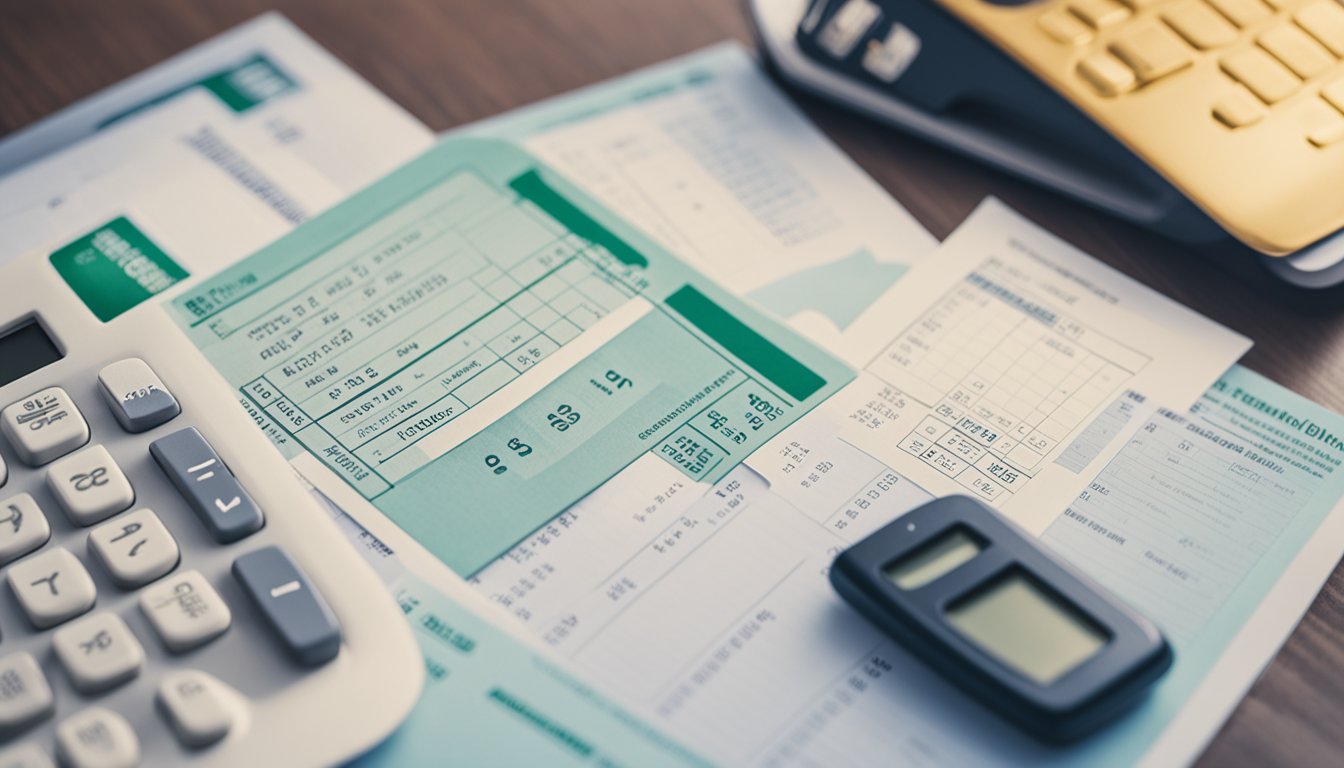
When considering using your credit card to pay off your personal loan, there are several financial implications and considerations to keep in mind.
Impact on Credit Score
Using your credit card to pay off your personal loan can have an impact on your credit score. If you have a high credit utilization ratio, which is the amount of credit you are using compared to your credit limit, it can negatively affect your credit score. However, if you have a low credit utilization ratio, it can positively affect your credit score. It is important to keep this in mind when deciding whether to use your credit card to pay off your personal loan.
Budgeting for Repayments
Another consideration when using your credit card to pay off your personal loan is budgeting for repayments. You will need to make sure that you have enough monthly income to make your credit card payments on time. It is important to note that credit card interest rates are typically higher than personal loan interest rates, so you will need to factor in these higher interest charges when budgeting for repayments.
When using your credit card to pay off your personal loan, you should also be aware of any fees and charges that may apply. These can include processing fees, early repayment fees, and late payment fees. It is important to read the terms and conditions of your credit card carefully to understand these fees and charges.
In summary, using your credit card to pay off your personal loan can have both positive and negative financial implications. It is important to consider your credit score, budget for repayments, and be aware of any fees and charges that may apply before making a decision.
Alternative Loan Repayment Methods
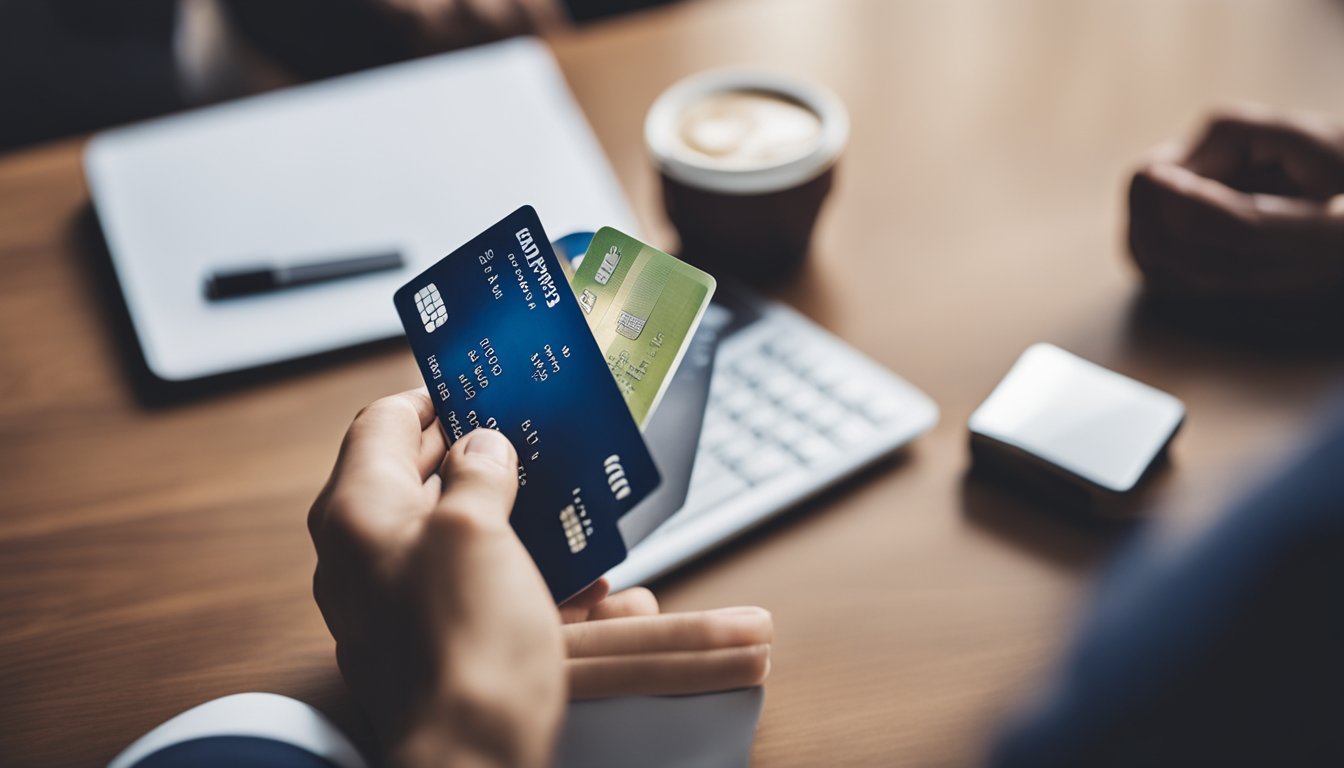
If you are struggling to pay off your personal loan, you might be wondering if you can use your credit card to pay it off. While this may seem like a good idea at first, it is generally not recommended as credit cards usually have higher interest rates than personal loans. However, there are alternative loan repayment methods that you can consider.
Secured vs Unsecured Loans
Before we dive into alternative loan repayment methods, it is important to understand the difference between secured and unsecured loans. Secured loans require collateral, such as your home or car, which the lender can seize if you fail to repay the loan. Unsecured loans, on the other hand, do not require collateral but usually have higher interest rates.
Personal Instalment Loans
One alternative loan repayment method is to take out a personal instalment loan. This type of loan allows you to borrow a lump sum of money and pay it back in fixed monthly instalments over a set period of time. Personal instalment loans usually have lower interest rates than credit cards and can be a good option if you need to consolidate your debt.
Short-Term and Low-Interest Loans
Another alternative loan repayment method to consider is short-term and low-interest loans. These loans are designed to be repaid quickly and usually have lower interest rates than credit cards. However, they may have higher fees and charges, so it is important to read the terms and conditions carefully before applying.
In summary, while using your credit card to pay off your personal loan may not be the best option, there are alternative loan repayment methods that you can consider. Whether you opt for a personal instalment loan or a short-term and low-interest loan, it is important to do your research and choose the option that best suits your needs and financial situation.
Applying for Loan Repayment Using Credit Cards
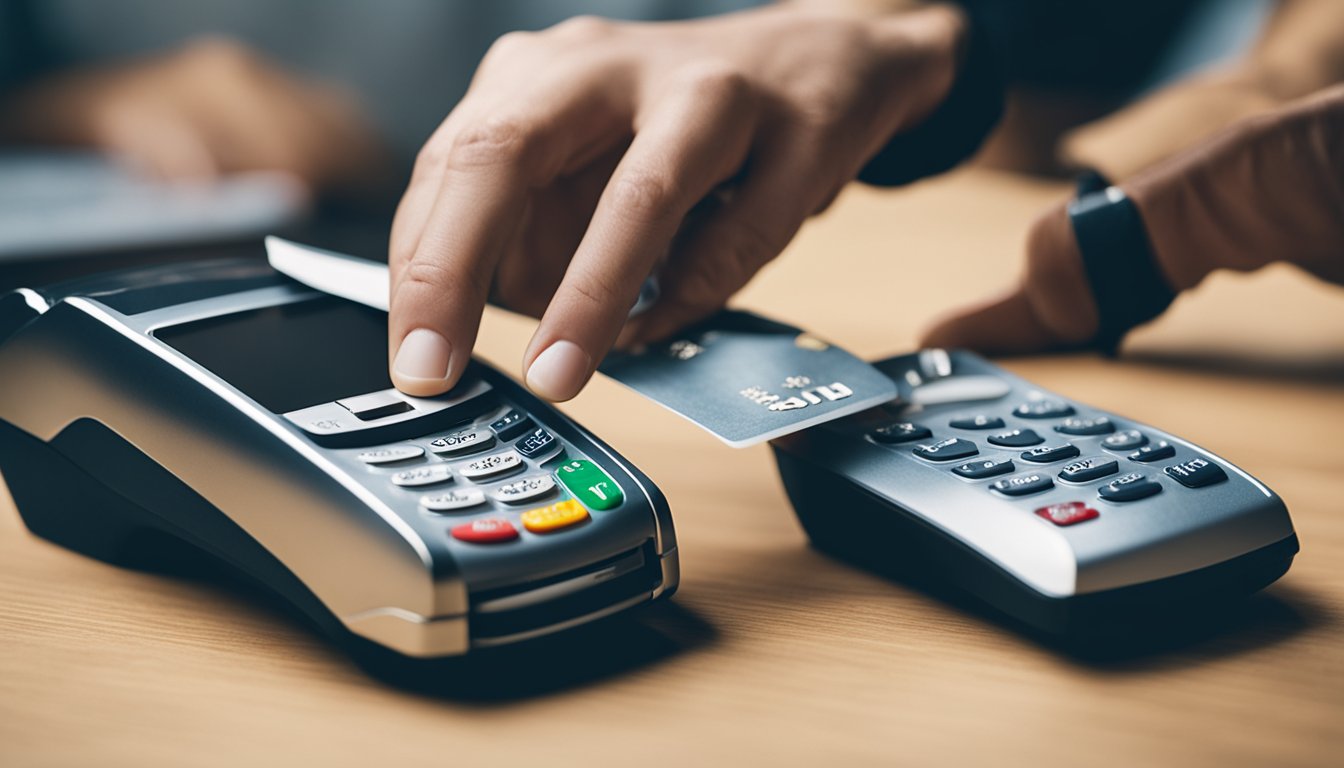
If you’re looking for a convenient way to pay off your personal loan, using your credit card may be an option. Here’s what you need to know about applying for loan repayment using credit cards in Singapore.
Application Process and MyInfo
To apply for loan repayment using credit cards, you’ll need to log in to your bank’s online portal or visit a bank branch. Some banks may also allow you to apply for a credit line increase to cover your loan repayment.
To make the application process smoother, you can use MyInfo to autofill your personal details. MyInfo is a government service that allows you to share your personal data with banks and other government agencies quickly and securely. Using MyInfo can save you time and effort when filling out application forms.
Assessing Promotional Offers
Before applying for loan repayment using credit cards, it’s important to assess the promotional offers available. Some credit cards may offer lower interest rates or cashback promotions for loan repayment. Take the time to research and compare different credit cards to find the best promotional offer for your needs.
It’s also important to note that some credit cards may charge a fee for loan repayment. Be sure to read the terms and conditions carefully before applying to avoid any unexpected charges.
In conclusion, using your credit card to pay off your personal loan can be a convenient option in Singapore. By using MyInfo and assessing promotional offers, you can make the application process smoother and potentially save money on interest or receive cashback promotions.
Frequently Asked Questions
What are the best strategies for tackling credit card debt swiftly in Singapore?
If you have accumulated a significant amount of credit card debt, you may be wondering how to tackle it quickly. One strategy is to consider taking out a personal loan to consolidate your credit card debt into one manageable payment. Additionally, you can try negotiating with your credit card provider for a lower interest rate or consider transferring your balance to a credit card with a lower interest rate.
Is it possible to settle a personal loan using a credit card?
It is generally not possible to settle a personal loan using a credit card in Singapore. Most lenders do not allow credit card payments for personal loans, as they prefer to receive payments directly from a bank account. However, you can consider taking out a balance transfer credit card to consolidate your debt and pay it off over time.
How can I expedite the payment of my Standard Chartered CashOne loan from a DBS account?
If you have a Standard Chartered CashOne loan and a DBS account, you can make an immediate payment through DBS’s Bill Payment service. Simply log in to your DBS account and select “Bill Payment” to make a payment to your Standard Chartered CashOne loan account.
Are there any efficient methods to pay off a Standard Chartered Personal Loan online?
Yes, you can pay off your Standard Chartered Personal Loan online through the bank’s website or mobile app. Simply log in to your account, select “Payments and Transfers,” and choose “Loan Payment” to make a payment. You can also set up a recurring payment to ensure timely payments.
Can I manage my Standard Chartered Credit Card bill through a different bank?
Yes, you can manage your Standard Chartered Credit Card bill through a different bank by setting up a GIRO arrangement. Simply log in to your bank’s website or mobile app, select “Payments and Transfers,” and choose “GIRO” to set up automatic payments for your Standard Chartered Credit Card bill.
What impact does settling a personal loan have on my credit score?
Settling a personal loan can have a positive impact on your credit score, as it shows that you have paid off your debt in full. However, it is important to note that missing payments or defaulting on a loan can have a negative impact on your credit score.
Loans Made Easy: Get Cash Fast with Quick Credit
Forget complicated forms and endless waiting. Quick Credit makes getting the cash you need simpler than ever.
Facing rising costs? Unexpected bills or that dream vacation got you strapped? No worries! A personal loan can help you out.
Quick and Convenient:
- Simple application: We only ask for the essentials – NRIC, payslips, CPF statements, and proof of address.
- Fast approval: Get a decision within 24 hours. No more waiting in line or filling out endless paperwork.
- Licensed and trusted: Quick Credit is a fully licensed moneylender in Jurong, Singapore.
Ready to take control? Apply for your personal loan online today and get the cash you need, fast. Don’t let unexpected costs hold you back.
